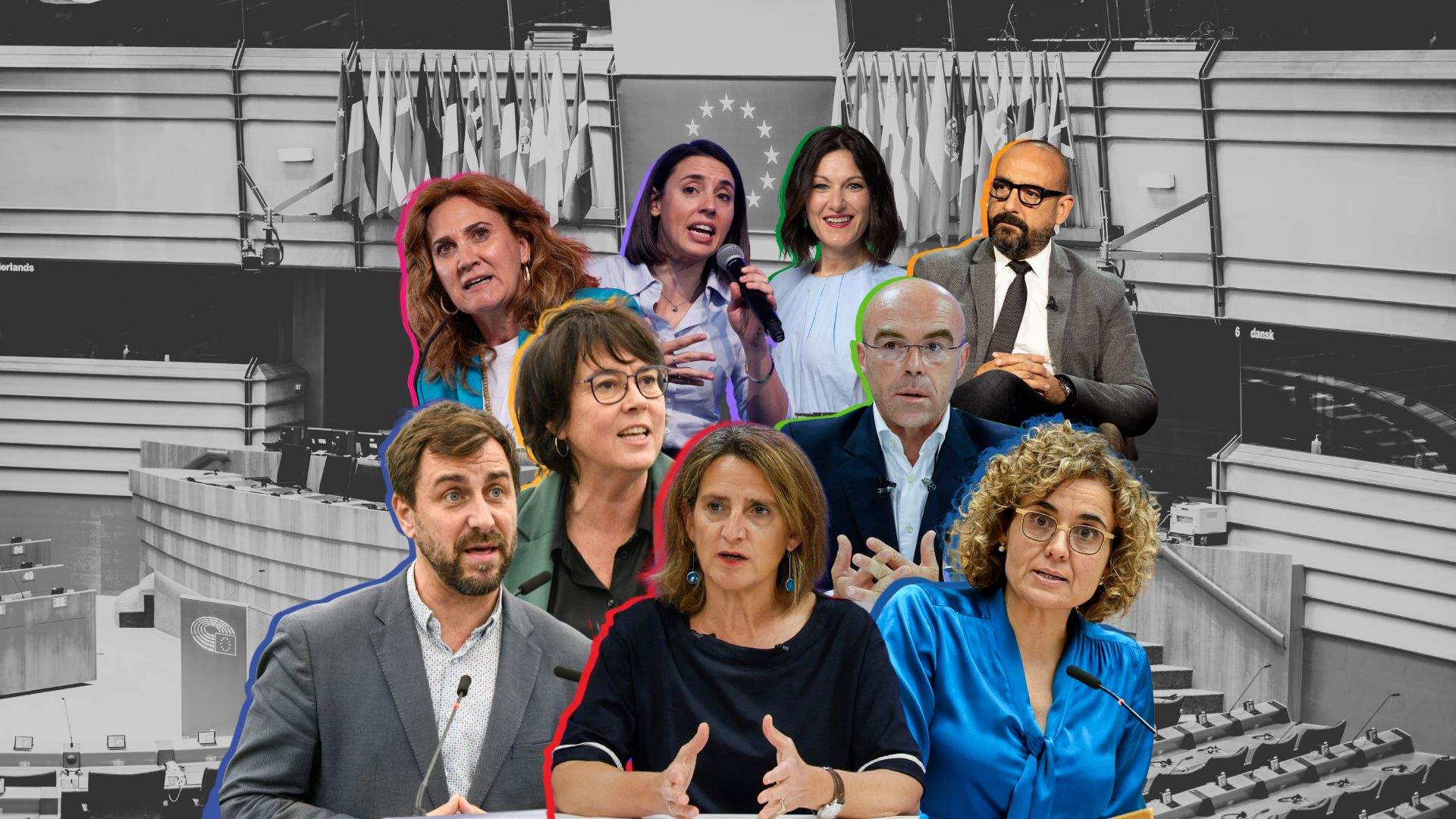Sunday, June 9th is the final day of a four-day voting interval in which the 27 countries of the EU are holding elections for the 720 members of the new European Parliament - and it is on that final day of elections that Spain's voters go to the polls, to choose 61 of the chamber's MEPs. Like most countries in the Union, Spain treats its entire territory as a single constituency for these elections, and thus, after the polls close at 8pm on Sunday and votes are counted, the 61 Spanish seats will be distributed proportionately according to the number of votes for each candidacy list, using the d'Hondt system of calculation. Since all of the Spanish state is the same constitutuency, people from any part of Spain can vote for lists headed by Catalan pro-independence parties or Basque nationalists - an option that doesn't exist in other elections. With a focus on the leading candidates of each list, here's a run through the main voting choices that not only Catalans but all Spanish voters can choose from this Sunday:
Diana Riba (ERC): Ara Repúbliques candidature
Diana Riba heads the Ara Repúbliques ("Now Republics") candidacy, a coalition that brings together left-leaning parties from Spain's peripheral regions and nations: her own Catalan Republican Left (ERC), the Basque party Euskal Herria Bildu, the Galician Nationalist Bloc (BNG) and the Balearic Islands party Ara Més. The European Parliament is not a new space for Riba, who has been an MEP for the last five years, after being elected in 2019 as the number 3 in the candidacy. Riba has a degree in education, and for 10 years ran a children's and youth bookstore in Sant Cugat, but in 2017 she made the jump to politics after her husband, Raül Romeva, then Catalan foreign minister, was imprisoned together with other members of the Carles Puigdemont government.
In 2019, the Ara Repúbliques candidacy won three seats. The top four on the list for 2024 are: Diana Riba (ERC), Pernando Barrena Arza (Bildu), Ana Miranda Paz (BNG), and Tomàs Molina i Bosch (independent). In the chamber, the MEPs from this candidacy are part of the Greens/European Free Alliance political group. Percentage of vote 2019: 5.6%. Current polling average*: 4.6%.

Toni Comín: Junts i Lliures candidature
Toni Comín is number 1 on the Junts i Lliures per Europa (Together and Free for Europe) list, taking over from Carles Puigdemont, who led this candidacy in 2019, and who this year decided to give up his continuity as an MEP in order to stand in the election in Catalonia on May 12th. A philosophy and politics graduate, Comín has had a long political career. Between 2003 and 2010 he was a deputy in the Catalan Parliament for the Socialists, and was part of Ciutadans pel Canvi (Citizens for Change), a movement promoted by Pasqual Maragall to group sectors of the Catalanist left, independent of their political parties. With the growth of the independence movement in Catalonia, he moved closer to the Catalan Republican Left, and in 2015 became a deputy again, but this time with the pro-independence unity candidature Junts pel Sí (Together for Yes). Carles Puigdemont appointed him health minister in his government in 2016, and after the application of Article 155 in late 2017 he went into exile in Belgium, where he has resided ever since, becoming a Junts MEP in the legislature that began in 2019, along with Puigdemont and Clara Ponsatí. With the application of the amnesty law, Comín plans to return to Catalonia soon.
In 2019, Junts i Lliures won 3 MEP seats. The top four on the candidacy list for 2024 are Toni Comín, Neus Torbisco (independent), Aleix Sarri, and Mariona Illamola. In the European chamber, the candidature has been part of the Non-Inscrit group, for parties that prefer not to allign with a European mega-group. Percentage of vote 2019: 4.5%. Current polling average: 2.5%.
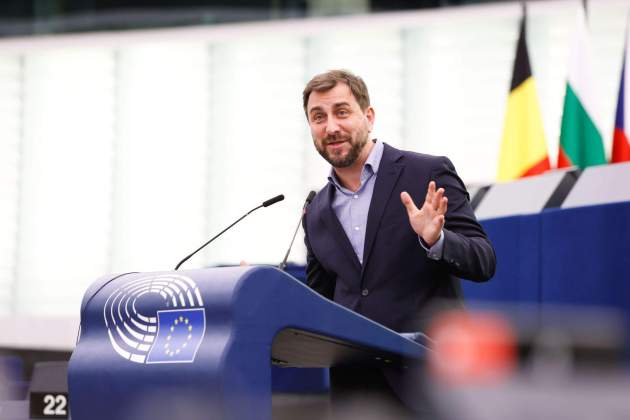
Dolors Montserrat: PP candidature
Dolors Montserrat repeats as the People's Party (PP) number one candidate in the European elections. This was confirmed by the leader of the Spanish conservative party, Alberto Núñez Feijóo, at the beginning of May, when he defended her candidacy as an example of the PP's "approach and commitment to Catalonia". Montserrat has a law degree, and before arriving at the European Parliament, where she has been a PP spokesperson, she was an MP in the Spanish Congress. In Mariano Rajoy's second term, she was Spanish minister of health, social services and equality.
In 2019, the Spanish PP won 13 seats in the European Parliament. The top four names on the candidacy list for 2024 are Dolors Montserrat, María Carmen Crespo, Alma Lucía Ezcurra and Esteban González Pons. As might seem natural, the Spanish PP is aligned in the chamber with the European PP, one of the two largest European political groupings. Percentage of vote 2019: 20.2%. Current polling average: 30.4%.
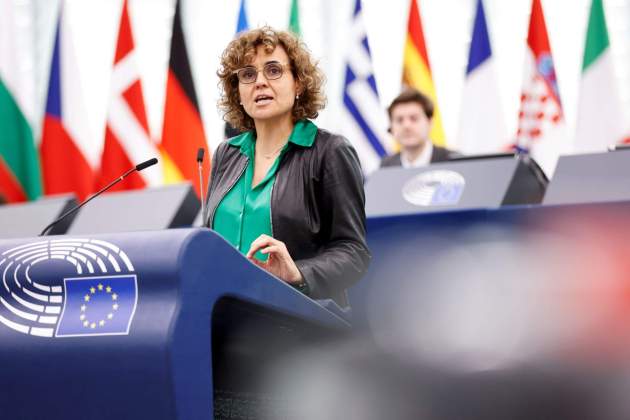
Teresa Ribera: PSOE candidature
The current Spanish minister for ecological transition and demographic challenge, and fourth-ranked of Spain's multiple deputy prime ministers, Teresa Ribera, is the number one on the Spanish Socialist (PSOE) list for the European elections. She has a law degree and has dedicated much of her professional career to the state administration, holding various professional positions, and has also been a law professor. She has also worked in areas related to the environment and climate change, and was undersecretary for climate change during the second PSOE government of José Luis Rodríguez Zapatero. Since 2014, she has directed the Institute for Sustainable Development and International Relations, a policy research centre related to sustainable development and climate change.
In 2019, the Spanish Socialist list won 21 seats in the European elections. Teresa Ribera, at number one, is followed at number two by Iratxe García, current MEP who has presided over the large European group of Socialists and Democrats, with which the PSOE deputies are grouped in the chamber. At number three is Javi López, the highest ranked representative for the Catalan Socialists, and also an MEP in the last two legislatures. Percentage of vote 2019: 32.9%. Current polling average: 29.6%.
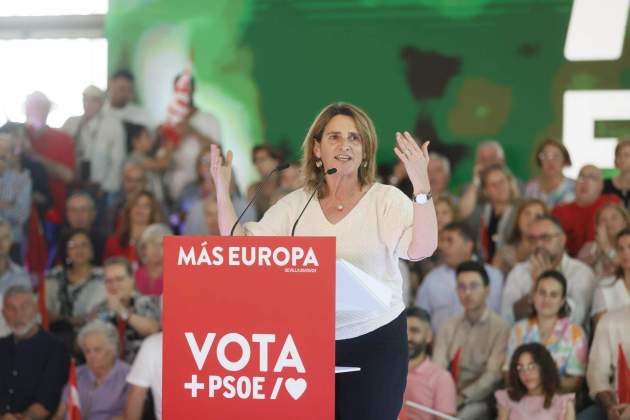
Estrella Galán: Sumar candidature
Estrella Galán is number one on the Sumar list for the European elections, a candidacy that brings together a number of "alternative left" parties from around the state: Catalan group the Comuns, Más Madrid, València's Compromís and Izquierda Unida, among others. Galán, with university qualifications in anthropology and migration, is at present the general director of the Refugee Aid Commission (CEAR), and her professional career has been focused in the non-profit sector, particularly on human rights and disadvantaged groups. It is the first time that she has stood as a candidate for the European Parliament. Better known in Catalan political circles is the number two figure in the Sumar candidacy, Jaume Asens, of the Comuns. A lawyer, before entering politics he focused on the defence of activists and social movements. He took part in the 15-M movement and was one of the founders of Podemos. In 2015 he joined the Ada Colau candidacy for the Barcelona City Council and became third deputy mayor, before jumping to the Spanish Congress in 2019 with En Comú Podem.
Sumar didn't exist as a party at the time of the 2019 European elections, although some of its component parties (such as the Comuns and Izquierda Unida) gained seats as part of the Podemos candidature, which held six seats in total. Most of the Sumar MEPs will join The Greens/European Free Alliance group in the chamber - like the Ara Repúbliques candidacy. Percentage of vote 2019: (did not exist, but Podemos-IU, 10.1%). Current polling average: 6.6%.
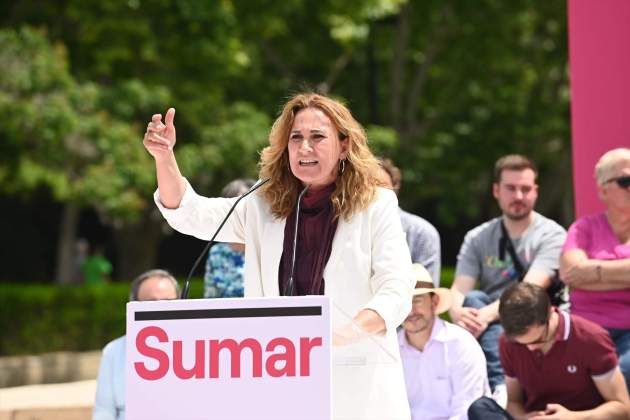
Irene Montero: Podemos candidature
Podemos, which formerly dominated the left-wing political space in Spain now led by the less-radical Sumar, is running independently in the European elections with Irene Montero as its candidate. The former Spanish equality minister has a psychology degree and began her political career in social movements. She was an activist in the housing action group Plataforma de Afectados por la Hipoteca (PAH), and from there made the jump to Podemos. In 2016 she was elected as a Podemos deputy in the Congress of Deputies, a position she held until 2023. In Pedro Sánchez's second legislature, after the PSOE and Unidas Podemos reached a government pact, she was appointed equality minister, portfolio from which she tackled the reform of the abortion law, Spain's trans law and the so-called 'Only yes means yes' sexual freedom law.
In 2019, the Podemos-led candidature won six European seats, but other parties involved have now joined Sumar. The top four on the Podemos list for 2024 are Irene Montero, Isabel Serra, Pablo Fernández, and Serigne Mbayé. Podemos MEPs will join The Left in the European Parliament (GUE/NGL). Percentage of vote 2019: as the broader Podemos-IU group, 10.1%. Current polling average: 3.5%.

Jorge Buxadé: Vox candidature
Jorge Buxadé repeats as head of the far-right Vox list in the elections to the European Parliament. He has a law degree and was part of the body of State Solicitors. Before joining Vox, he joined the Spanish Falange de las JONS, traditional party of Spanish fascism, with which he stood in two elections, in the Parliament of Catalonia and in the Congress of Deputies, without success. He also served in the PP, which he resigned from in 2014. As an MEP, he is known to have given coverage to several conspiracies of a xenophobic nature.
Vox won four seats in the 2019 European elections. The top four candidates on the list are Jorge Buxadé, Hermann Tertsch (independent), Juan Carlos Girauta (independent, formerly of Ciudadanos), and Mireia Borrás. In the European chamber, Vox MEPs are part of the far-right European Conservatives and Reformists (ECR) group. Percentage of vote 2019: 6.2%. Current polling average: 10.0%.
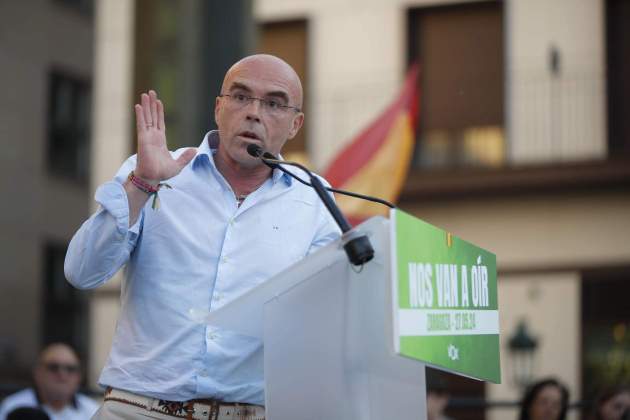
Oihane Agirregoitia (PNV): CEUS candidature
Oihane Agirregoitia, of the Basque Nationalist Party (PNV), leads the candidacy of the CEUS (Coalition for a Solidary Europe), which brings together several small nationalist and regionalist parties from around the Spanish state, including, as well as the PNV, the Canarian Coalition, Navarra's Geroa Bai and the Balearic Island party El Pi. Agirregoitia holds an electronic and organizational engineering degree and has been a Bilbao city councillor for 12 years. In the last year she worked as director general of Good Governance, Citizen Service and Digital Services for the Biscay provincial authority. She replaces the PNV's Izaskun Bilbao, the party's candidate to Europe in the three previous elections, who was the only CEUS representative in the last European legislature and joined up with the Renew Europe group in the chamber. Percentage of vote 2019: 2.8%. Current polling average: 1.7%.
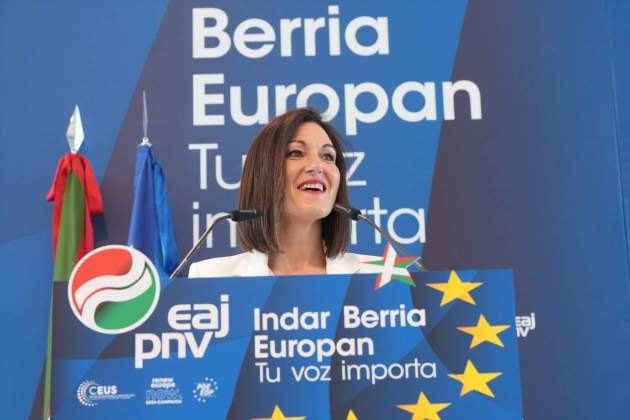
Jordi Cañas: Ciudadanos candidature
Jordi Cañas heads the candidacy of Ciudadanos (Cs) in the European elections. He has been a member of the party since its foundation in 2006, and was a member of the Parliament of Catalonia between 2010 and 2014, acting as the parliamentary group's spokesperson in the second legislature. He resigned from his seat after being indicted in an alleged tax fraud case that was eventually dropped. For the following four years he worked as a parliamentary advisor to MEPs Juan Carlos Girauta (now in the Vox list) and Javier Nart. In 2019 he ran as number 6 in the European elections and won a seat.
Ciudadanos, a party whose electoral success has been a roller-coaster ride, achieved eight MEPs in 2019, but now the European Parliament is one of the few institutions where it still holds seats. The top four candidates on the party list are Jordi Cañas, Javier Nart (independent), Mariana Boadella, and María del Carmen Peris. Cs have been part of the Renew Europe group in the chamber. Percentage of vote 2019: 12.2%. Current polling average: less than 1%, not registering on many polls.
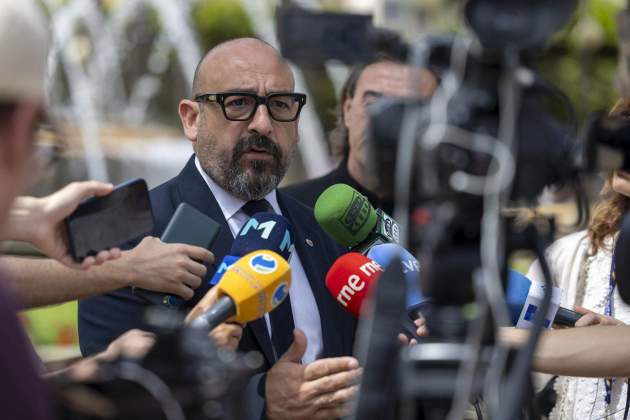
Alvise Pérez: SALF candidature
There are a total of 33 registered voting candidatures in the Spanish state. A late entry to the top ten taken into account by the pollsters is Se acabó la fiesta (SALF) - "The party is over" - a far-right populist list which formed around Alvise Pérez, former member of Ciudadanos and the Spanish nationalist party UPD. In a recent interview, Pérez has confessed that the objective of presenting his candidacy for the European elections is to gain visibility for a future general election in Spain. However, in the context of a generalized swing to the right that is predicted, some polls predict that the new extremist party has a chance of claiming a place among Spain's 61 seats in the European chamber. In some polls: up to 4%.

*Percentages quoted as "current polling averages" are from ElNacional.cat's running average of all European election polls

